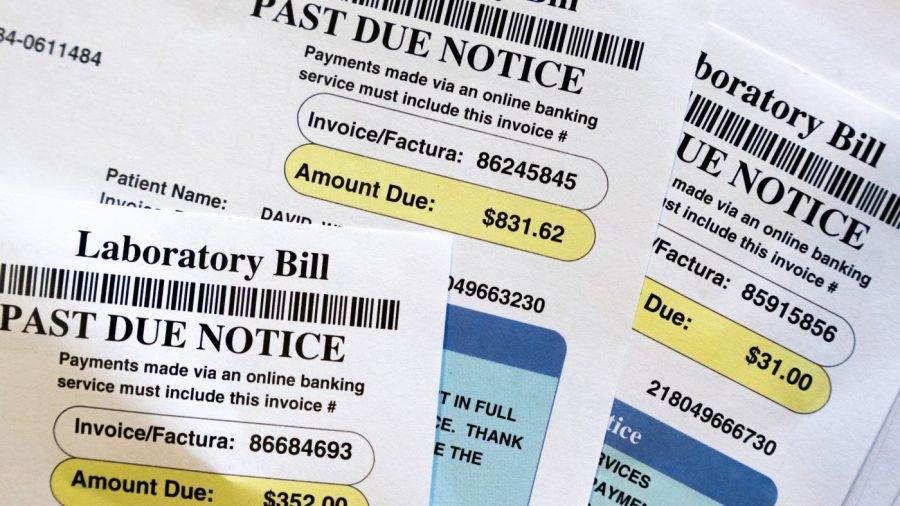
Cheryl, a web developer, woke up in the hospital after her husband, worried about her health, had called an ambulance. Even though she had good insurance, Cheryl owed more than $25,000 out of pocket. Inundated with bills, she called the hospital, confirmed the total she owed and worked out a payment plan with them.
“The whole mess was exhausting but I was willing to throw money at people to make it go away,” Cheryl told me. “We had to use credit cards to pay it, which I’m still paying off now.”
But almost two years after Cheryl’s health scare, the unthinkable happened. She received a call from a debt collector demanding payment for an outstanding physician bill relating to her hospital stay. Cheryl called the hospital and her insurance company to determine if she even owed this additional bill.
Two weeks later, still waiting for an answer, she received an email from her identity theft service saying she had a “major derogatory account.” The debt collectors had reported the disputed bill to the credit bureaus, causing Cheryl’s credit score to drop by 60 points.
“I am willing to pay them what I would have owed,” she said. “I did pay my debts related to that visit and I don’t think I’m trying to get away with something sneaky here. I don’t think it’s right that they used my credit score to punish me when I wouldn’t pay them $1,700 without explanation. It felt like extortion.”
These kinds of anecdotes prompted the Consumer Financial Protection Bureau to issue a final rule in the final days of the Biden administration that will eliminate medical debt from credit reports sent to lenders. The rule should go into effect in mid-March, but it may never provide relief to those it is intended to protect. The credit-reporting industry and third-party collectors both immediately filed lawsuits to block the rule. And some members of Congress have indicated interest in repealing it, despite polling indicating that 82 percent of all voters favor it, across party lines.
Data from 2021 shows that 20 million Americans have medical debt that can hamper their financial future. Overbilling, mistaken billing and illegal double-billing are often reported as unpaid debt. In addition, many families face large bills after a sudden health care need and large out-of-pocket amounts they can’t pay within the 90 days required by providers.
Legitimate or not, reports of unpaid debt can tank an otherwise strong credit score. The new rule would change that for about 15 million Americans with medical debt on their credit reports.
Here’s how the new rule works: Owed medical bills will still appear on people’s credit reports, where landlords or employers who request a copy can see it. But when a potential lender requests a credit report, the reporting company (usually Equifax, Experian or TransUnion) will be required to exclude bills owed to health care providers.
Unlike debt resulting from irresponsible spending, medical bills generally are unavoidable. One report showed that medical debt does not indicate a person’s desire or willingness to pay off loans.
My organization agrees with the CFPB: Credit reports should treat medical bills differently. Lenders should not make loan decisions based on medical bills reported to credit agencies. The CFPB, which tracks and analyzes people’s complaints about debt collection, said that “debt collectors continue to collect on and report to the credit bureaus medical bills even after the consumer has shown that they do not owe the amount.” The agency has taken action against two credit reporting companies for failure to investigate disputed information on credit reports.
Americans still need to pay medical bills they actually owe, because the new rule does not eliminate legitimately owed medical debt. But a better credit score will make lenders less likely to deny them a credit card or auto loan while they recover and pay off those medical bills.
Cheryl’s own story shows how, in just two weeks, an erroneous medical bill can drop an otherwise good credit score by 60 points. The CFPB gets extra credit for protecting consumers from billing errors. Congress and the courts should stand behind the CFPB rule and help families avoid long-term consequences of erroneous medical billing.
Patricia Kelmar is senior director of health care campaigns at the U.S. Public Interest Research Group Education Fund.











